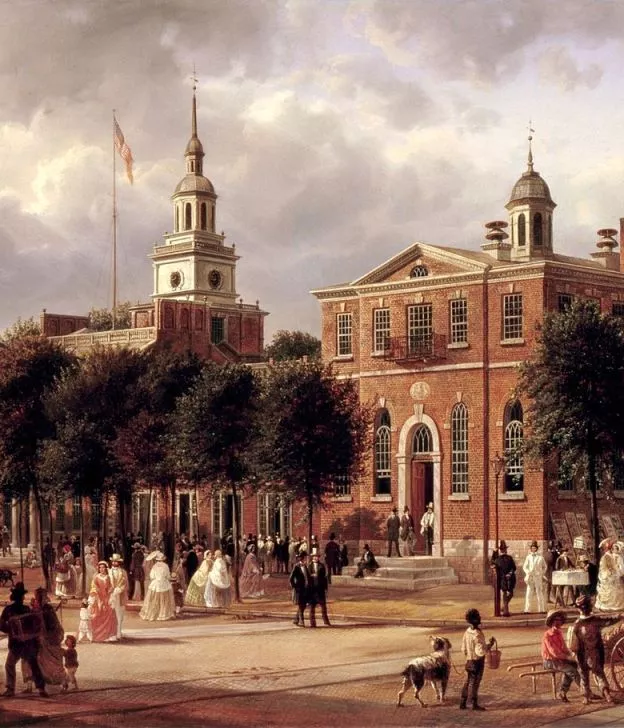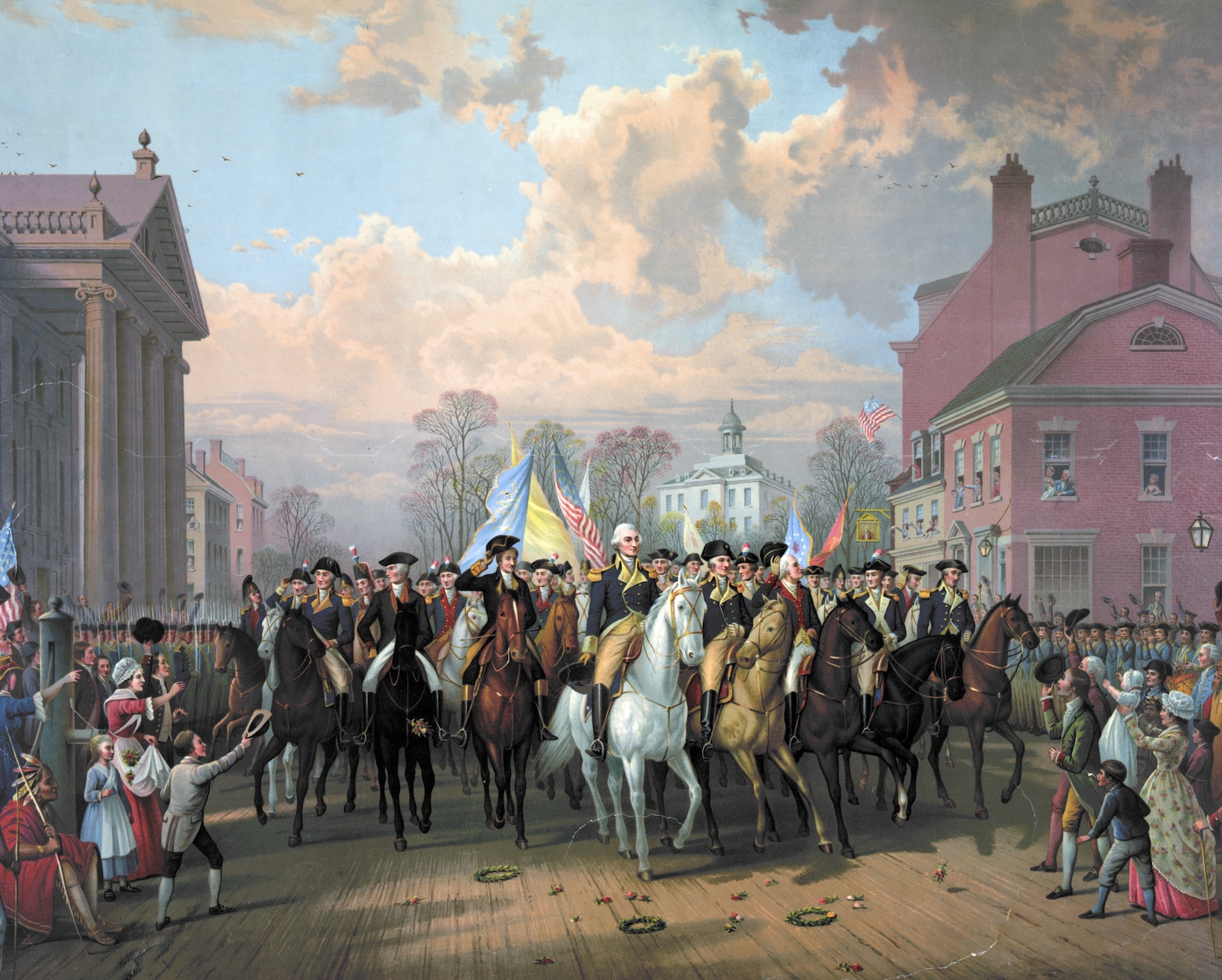
Watering A Nation’s Roots
JMC President Hans Zeiger reviews Russell Kirk’s book, The Roots of American Order (Wilmington, DE: ISI Books, 2003), 534 pages. September 12, 2024.
In 1967, Pepperdine College commissioned the historian and conservative man of letters Russell Kirk to write a history textbook for the southern California Christian college. The result, seven years later, was a book entitled The Roots of American Order.
Roots is one of those books that the reader can reopen and cherish from time to time throughout a lifetime, and I recently reopened my copy of Roots for the first time in years (I owe a debt to Professor Bradley Birzer for first introducing it to me when I was an undergraduate at Hillsdale College). It turns out the book is 50 years old in 2024, and it is worthy of consideration in our time just as it was when it first appeared.
The Roots of American Order was released the same year that Gerald Ford was elevated to the presidency, following the resignation of President Nixon. Like Ford, Kirk was a Michigander. For most of his life, Kirk lived and worked in Mecosta, Michigan.
Kirk is not the only historian who attempted to trace the story of western civilization and its culmination in the American experiment, but he was remarkable for his ability to identify, concisely and elegantly, the important themes of the American tradition and its antecedents. Above all, Kirk singled out the theme of order, which, Simone Weil once observed, “is the first need of all” (Kirk, 3).
In naming order as the theme, and particularly the “American Order,” Kirk portrayed other values—freedom, equality, and justice among them—in dependence on the existence of order, but also characteristic of America’s order. The theme of order is woven throughout Kirk’s book.
The roots of American order “go deep,” wrote Kirk, “but they require watering from time to time” (Kirk, 470). In his depiction of Western Civilization, Kirk argued that America is a culmination of many cultures and ideas. Rather than being a completely new experiment begun in isolation to the collective experience of the world, America is the embodiment of ideals and principles that first were established by the Greeks, Hebrews, Romans, Christians, and British.
The Roots of American Order is an historical journey to the symbolic cities of the West. From Jerusalem, America inherits the moral law in the Ten Commandments, faith in a sovereign God, a belief in man’s sinful condition, and the sacred Covenant that sustains our institutions: marriage and family, civil government, community. Athens teaches America the importance of myth, the value of reason, and the lessons of war and democracy. Rome teaches natural and civic law, republican institutions, and the high virtues of an ordered society. Christianity answers the ultimate questions of purpose, love, and eternity by a Gospel wherein God sent His Son to bear the sins of the world. The Middle Ages gives to America a tradition of common law, higher education, and constitutionalism. From the Reformation comes the American Protestant heritage that emphasizes grace, individualism, and the necessity of ongoing prudent reform. London teaches the rights and duties that must be balanced before God and the king.

And in Philadelphia, in 1776 and 1787, the framers of the United States combined this mighty heritage into what Edmund Burke termed, “a revolution not made, but prevented” (Kirk, 398). Kirk’s account of the war for independence looks more like a historical continuity than a departure. There is much room for debate about how radical or conservative the revolution really was, but Roots makes a compelling case for America’s indebtedness to ideas and examples passed down in the course of an enduring civilization.
The American founders, to whom Kirk dedicated a couple of chapters, do not stand alone in the history of liberty. Kirk pointed to the philosophers and statesmen of the classical world: Aristotle, Plato, Socrates, Solon, the Caesars, Cicero, and Virgil. And to understand the patterns of faith and culture found in America, Kirk chronicled the contributions of Abraham, Moses, Job, David, Solomon, the Prophets, Paul, Peter, John, Augustine, Luther, and Calvin.
Kirk’s study of America since the founding is far from exhaustive, but it serves as an invitation to read on and learn more about interesting literary, political, and cultural standard bearers—some well-remembered and others, like 19th century writer Orestes Brownson, largely forgotten. If Kirk’s 1953 Conservative Mind deserves criticism for its failure to properly acknowledge the role Abraham Lincoln played in the American tradition, The Roots of American Order accords Lincoln great honor. Lincoln was “Washington’s equal in republican virtue” who left to his country “the example of strong probity,” wrote Kirk. Kirk’s concluding sentence in the section on Lincoln is full of meaning: “Out of the American democratic experience he came; and his life proved that a democracy of elevation can uphold resolutely the public order and the moral order.”
“America’s order,” Kirk wrote, “rose out of acts of affirmation, from what Thomas Carlyle called ‘the Everlasting Yea.’ Upon the classical and the theological virtues, upon the social experience of the Old World and the New, there was built by self-sacrifice and high imagination the intricate structure of personal and public order” (Kirk, 475). Though struggling against pressures that undid past cultures, Americans retained a profound affection for their heritage that gave Kirk hope in 1974. Today, a new generation of Americans would be well-served by reading The Roots of American Order. It will help us to treasure the historical foundations of the country, and it will teach us much about what we must do to prolong that order in our own time.
Hans Zeiger is president of the Jack Miller Center, an educational venture to advance the history, documents, and ideals we hold in common as Americans.
